
Opinions
14:10, 20-Aug-2017
Opinion: Parents shouldn’t force unfulfilled dreams on children
By Zhang Yi from Global Times
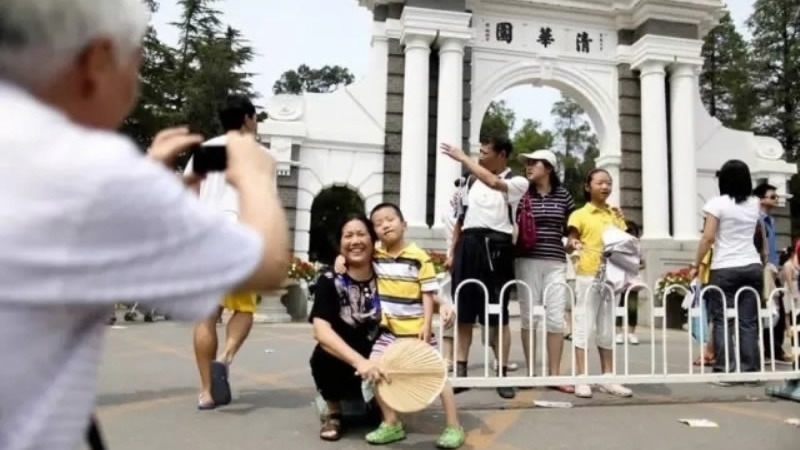
If you ask a Beijing resident what tourist attractions are the best for children during the long and hot summer vacation, you may no longer get stereotypical answers such as the Summer Palace and the Imperial Palace. Instead, you will hear about the hustling and bustling Tsinghua and Peking Universities, two top universities in China.
News has gone viral online recently that the two universities are swamped with thousands of parents who hope that a campus visit with their kids will help them to get enrolled in the leading institutions some day.
In extreme cases, some parents ask their children to put on mini bachelor's gowns to take photos before the entrance gates of the universities under the hot sun, believing a photo is enough to provide a competitive advantage, even though sometimes the children feel too hot to cooperate. Now the number of little students queuing to enter the two universities during this summer holiday has reportedly exceeded 200,000.
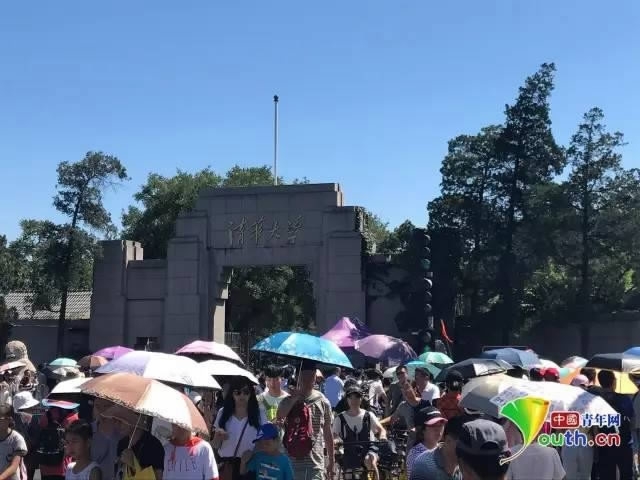
People lined up for entering Tsinghua Univerisity. /China Youth Daily Photo
People lined up for entering Tsinghua Univerisity. /China Youth Daily Photo
The worship of Tsinghua and Peking Universities is not unwarranted. A teenager needs extreme intelligence and hard work, and a little bit luck, to get into one of them. It is competition beyond imagination. It means the students have to study 15 hours a day and 28 days a month, at an age when they are supposed to experience childhood.
In addition, admission to these two top universities will help, if not secure, a promising job, in the best case scenario followed by an affluent life.
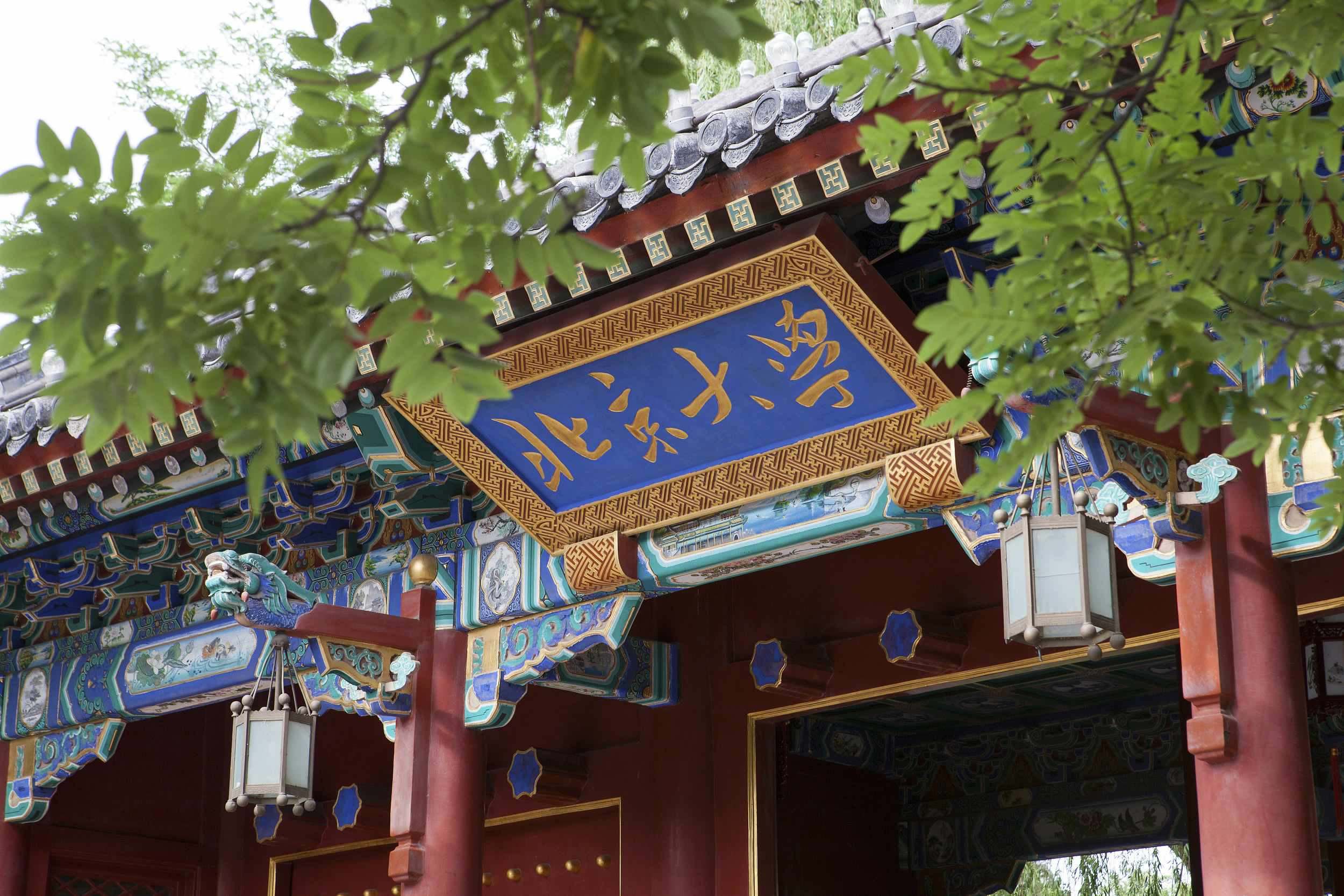
Peking University /VCG Photo
Peking University /VCG Photo
Perhaps this is the best that parents could wish for their children. Most Chinese parents did not make it to the country's top universities or live an affluent life, so they place high hopes on their children to fulfill their dreams.
This reminds me of the story of one of my friends. He sold his 90-square-meter house outside the Fifth East Ring Road of Beijing and bought a 60-square-meter one within the Second East Ring Road of the city with a loan of 2 million yuan (290,900 US dollars). The only advantage of this new, small house is that it will secure a place for his three-year-old son to enter a nearby top primary school a few years later.
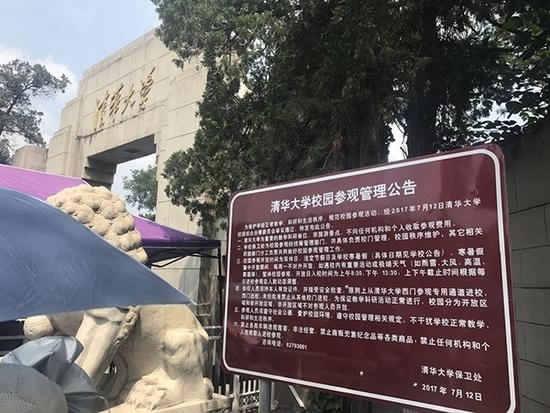
A billboard of Tsinghua University's campus visiting regulations /The Paper Photo
A billboard of Tsinghua University's campus visiting regulations /The Paper Photo
My friend is far from the only one that has contributed to Beijing's, or even the nation's frenzy for so-called school district housing. He and his wife both graduated from ordinary universities and are ordinary working class people. They are the epitome of millions of couples who struggle to live a decent life in Beijing. It is not hard to imagine that now they have to sacrifice their daily quality of life, only to pin their hopes on their children to achieve what they did not achieve.
Like most Chinese parents, they are more than happy to do this. But they may fail to realize that the best education for children is from themselves. If they could better themselves and set themselves as an example to be a good person, it would prove more effective than imposing their wills on and passing on their unfulfilled dreams to their children.
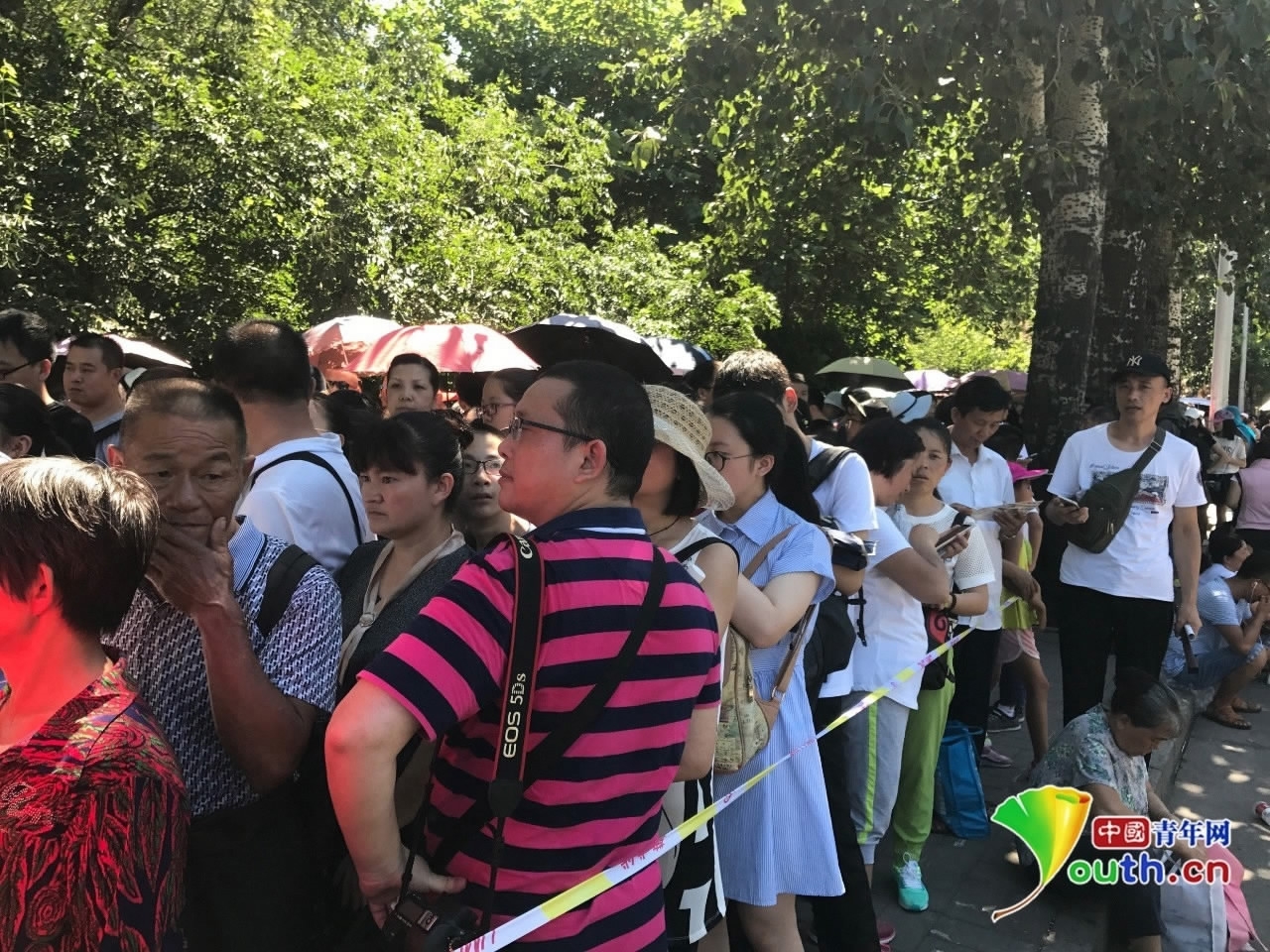
People lined up for entering Tsinghua University. /China Youth Daily Photo
People lined up for entering Tsinghua University. /China Youth Daily Photo
Chinese parents sacrifice a lot for their children under the banner of selfless love, while the hidden requirement is that the children obey their words and follow their will. Children are independent individuals rather than parents' tools to fulfill their unfulfilled dreams. If parents can realize this, then it releases a burden not only for the children, but also for themselves.
(This piece was originally published in Global Times. The author is a freelance writer based in Beijing. The article reflects the author's opinion, and not necessarily the views of CGTN.)
Source(s): Global Times

SITEMAP
Copyright © 2018 CGTN. Beijing ICP prepared NO.16065310-3
Copyright © 2018 CGTN. Beijing ICP prepared NO.16065310-3